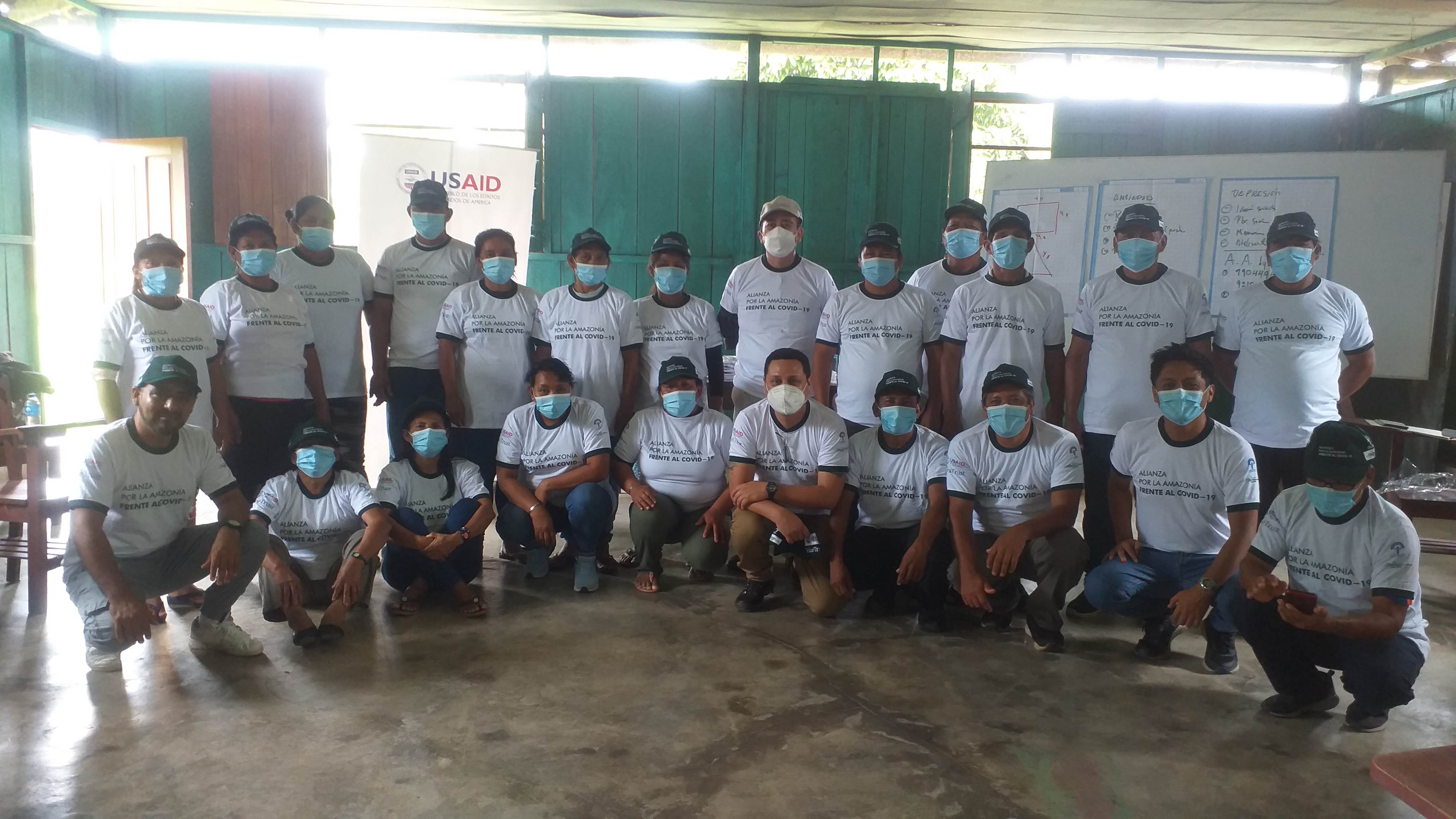Community Health Agents and Holistic Medical Care in the Amazon
In the fifth of his blog posts on the Amazon Hope Medical Programme's mental health component, Programme Director Román Rodriguez talks about the concept of Community Health Agents and how they can support the physical and mental well-being of those living in isolated and vulnerable communities.
For decades, the Ministry of Health of Peru implemented a great idea to promote health in the country’s most remote communities: train some members of these communities in basic health care such as registration and referral of cases, how to maintain contact with health centres, how to take action in disease prevention and how to attend to certain types of emergencies and deliveries.
In remote places that are far away from formal health services, the role of these Community Health Agents has been crucial, especially during the times of the COVID-19 pandemic.
However, one aspect that needed to be addressed was mental health. In places where physical health services were very limited, mental health services were practically non-existent. That is why the Amazon Hope Medical Programme (PMEAP), in alliance with CEDRO and USAID, decided not only to provide psychological care to the communities, but also to train Community Health Agents to provide primary mental health care for people.
In this way, coordination began with the Loreto Regional Health Management to summon the agents and provide them with training on topics such as psychological warning signs, impulse control strategies, referral of cases, psychological first aid, and prevention of alcohol abuse.
It was also decided to train the staff of the health centres in these areas since these professionals had not received training on the relevant issues either.
In this way, between 2021 and 2022, 181 people were trained in providing mental health support (123 community agents and 58 health centre professionals).
During these trainings, the community agents demonstrated important knowledge about the problems of their communities and a great desire to improve the living situation of the people who live there.
The fact that these agents didn’t have specialised higher education qualifications was not an impediment when it came to acting as leaders in the search for solutions to various problems that afflicted their family, friends and neighbours in the community.
Even with mental health issues, some already had experience providing emotional support and conflict resolution to loved ones without even knowing those technical terms. They did this guided by their experience, intuition, and desire to help.
These trainings provided them with tools to use in their communities. Unfortunately, the mental health project could not continue in 2023, so it was not possible to follow up on the actions in the communities or to train more agents.
However, this first experience marked the beginning of this type of activity and implementation of mental health support in the area, which we hope will soon be replicated by us, the state, or other organisations.
The PMEAP turned on the light of mental health support in the riverside communities of Loreto and we are sure that it will continue to be lit, on behalf of those who need it most.
